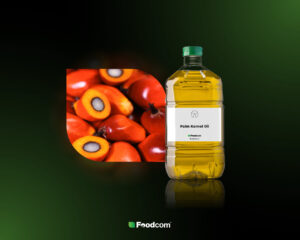- Afghanistan is strengthening cooperation with Russia amid fears of food supply disruptions from Iran.
- Russia and Kazakhstan are key suppliers of wheat and flour to Afghanistan.
- Afghanistan is increasing wheat production and limiting imports of processed flour.
- The escalation of the Iranian-Israeli conflict threatens food security and the fate of millions of refugees.
Afghanistan strengthens cooperation with Russia amid concerns over security of food supply
Afghanistan is stepping up trade cooperation with Russia amid rising tensions in the Middle East. According to Afghanistan’s Agriculture Minister Ataullah Omari, the country is in talks with Moscow to increase imports of selected food products. The reason for this is concerns about possible supply disruptions from Iran, which has remained one of Afghanistan’s key trading partners for years.
An Afghan delegation is currently attending the St Petersburg International Economic Forum, where food trade issues are being discussed. Omari stressed that although Afghanistan is striving for self-sufficiency in agricultural production, it is still dependent on imports of certain products, especially from Iran. The current armed conflict between Iran and Israel raises serious concerns about the stability of supply.
Russia a key supplier of wheat and other products to Afghanistan
Iran supplies Afghanistan with dairy products, among others, but Russia and Kazakhstan remain the main suppliers of wheat and flour. Russia also exports sugar and vegetable oils to Afghanistan. Afghanistan is the largest buyer of Russian flour in 2024, while increasing its own wheat production by 10% to 4.83 million tonnes. The country’s annual wheat demand is estimated at around 6.8 million tonnes.
Afghan authorities are seeking to reduce imports of processed flour in favour of wheat grain, with the aim of strengthening the country’s milling industry and increasing participation in the local food production chain. Following Russia’s decision to lift its ban on contacts with the Taliban government, economic relations between the two countries are gradually normalising. Afghanistan has also been importing gas, oil and wheat from Russia since 2022.
Minister Omari also expressed concern over the situation of nearly 4.5 million Afghan refugees residing in Iran, who could be affected by the escalation of the Israeli-Iranian conflict.
The market situation for cereals and agricultural products in the region remains dependent on developments in the Middle East conflict.

![Afghanistan strengthens trade with Russia in response to regional crisis [World News] Afghanistan strengthens trade with Russia in response to regional crisis [World News]](https://foodcom.pl/wp-content/uploads/2025/03/News-world_19-1520x760.png)


![The European Union is increasingly willing to accept a 10% residual tariff in talks with the US [World News] The European Union is increasingly willing to accept a 10% residual tariff in talks with the US [World News]](https://foodcom.pl/wp-content/uploads/2025/03/News-world_22-7-600x300.png)
![Canada is developing new non-GMO oat varieties [World News] Canada is developing new non-GMO oat varieties [World News]](https://foodcom.pl/wp-content/uploads/2025/03/News-world_22-1-600x300.png)
![India significantly increases palm oil imports in May [World News] India significantly increases palm oil imports in May [World News]](https://foodcom.pl/wp-content/uploads/2025/03/News-world_2-600x300.png)

